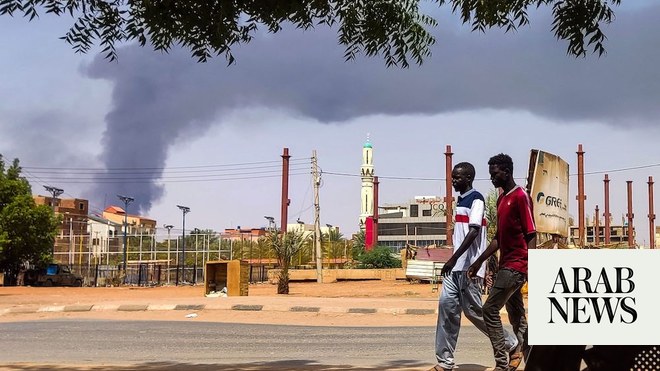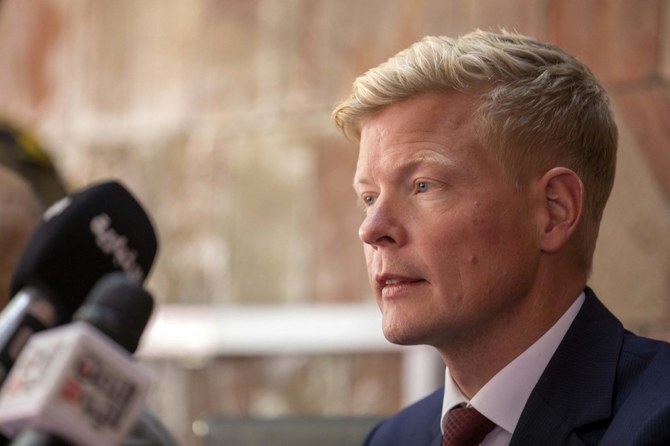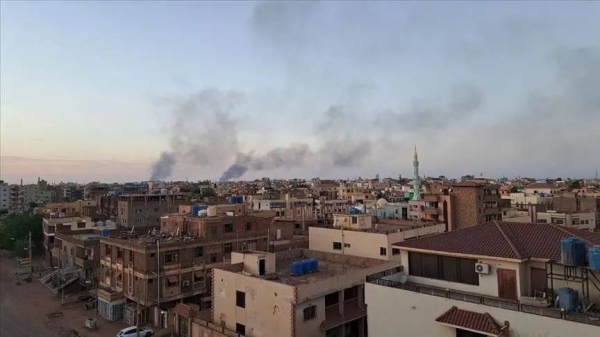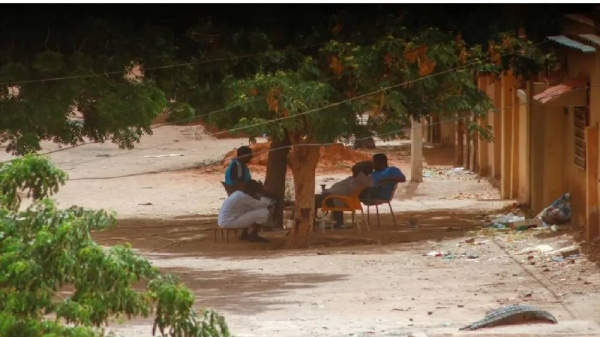
South Sudan’s President Salva Kiir and his arch-foe Riek Machar agreed on Wednesday to a "permanent" ceasefire that will take effect within 72 hours to end their country’s war.
"All parties have agreed on a permanent ceasefire within 72 hours," Sudans Foreign Minister Al-Dierdiry Ahmed said after talks between the two leaders in Khartoum.
Kiir and Machar then signed the document -- called the "Khartoum Declaration" -- in the presence of Sudanese President Omar al-Bashir.
"It is the day that our people of South Sudan have been expecting, and Im happy that it has finally been achieved," Kiir said after inking the agreement.
Machar said with the signing of the ceasefire, applicable across the entire country, the war "should come to an end".
The conflict erupted in 2013, around two years after South Sudan won independence from Sudan, when Kiir accused his then-deputy Machar of plotting a coup.
It claimed tens of thousands of lives, displaced four million people and left the newly created countrys oil-rich economy in tatters.
The latest push for peace in South Sudan comes as part of a fresh bid launched by East African leaders and with the two factions facing a looming deadline to avert UN sanctions.
Meanwhile, opposition spokesman Mabior Garang said there was no guarantee the ceasefire will work. "However, the involvement of the region is more serious now. We are cautiously optimistic."
Several previous ceasefire agreements have been violated. The latest ceasefire in December was violated within hours.
"This agreement says that peace has started to return to South Sudan," said Bashir.
The declaration, a copy of which was made available to AFP, stipulates that the ceasefire arrangement includes disengagement, separation of forces in close proximity, withdrawal of all allied troops, opening of humanitarian corridors, and the release of prisoners of war and political detainees.
It allows members of the African Union and the Intergovernmental Authority on Development (IGAD) -- an East African regional grouping that has been pushing peace efforts -- to "deploy the necessary forces to supervise the agreed permanent ceasefire".
"The security arrangements that shall be adopted shall aim at building national army, police and other security organs of an all-inclusive character that shall be free from tribalism and ethnic affiliations," the document says, calling for the disarmament of civilians to also be addressed.
Wednesdays declaration says a transitional government will be formed within 120 days which will govern the country for 36 months.
"During the transitional period the country shall be prepared for national elections," it says. "It is agreed that the election shall be open for all political parties and shall be free and fair."
The agreement says South Sudan in collaboration with Sudan would rehabilitate oilfield blocks 1, 2, 4 and 5A in Unity State in order to bring the countrys oil production to its previous levels.
"There should be no celebration yet," conflict analyst Jacob Chol told The Associated Press. Sudans involvement in the deal comes from its interest in South Sudans oil fields, he said.
While the agreement is a welcome step, "the culture of signing agreement today and violating it tomorrow" should stop immediately, the Juba-based Community Empowerment for Progress Organization said in a statement. It urged the warring sides to issue official cease-fire orders to their fighters in advance, something they failed to do in December.
During the war, oil production -- from which South Sudan gained 98 percent of its revenues on its independence -- has plummeted to about 120,000 barrels a day from a peak of 350,000, according to the World Bank.
South Sudans war dashed the optimism that accompanied independence from Sudan.
The new country quickly descended into civil war, including fighting within the national army, undermined by differences fueled by the deep enmity between Kiir and Machar.
Seven million South Sudanese, more than half of the population, will need food aid in 2018, according to the United Nations.












